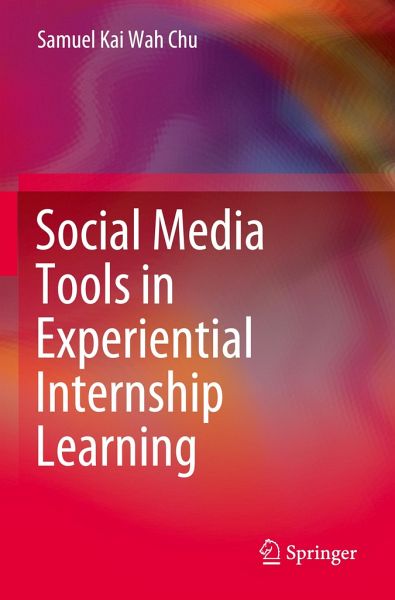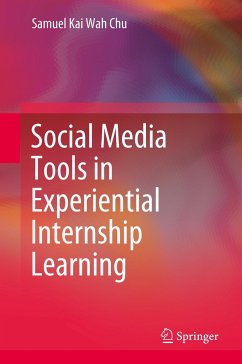
Social Media Tools in Experiential Internship Learning
Versandkostenfrei!
Versandfertig in 6-10 Tagen
106,99 €
inkl. MwSt.
Weitere Ausgaben:

PAYBACK Punkte
53 °P sammeln!
This book describes how a support structure can be built to enhance peer-to-peer (and also students-to-lecturers) communication and support. It informs lecturers on how they can decide if they should adopt one or more social media tools to facilitate students' learning, communication, and support for an internship program. This book introduces a participatory design approach that can help develop a pedagogy that will make good use of social media tools on internship learning. It presents a framework for experiential internship learning, integrating helpful educational practices such as partici...
This book describes how a support structure can be built to enhance peer-to-peer (and also students-to-lecturers) communication and support. It informs lecturers on how they can decide if they should adopt one or more social media tools to facilitate students' learning, communication, and support for an internship program. This book introduces a participatory design approach that can help develop a pedagogy that will make good use of social media tools on internship learning. It presents a framework for experiential internship learning, integrating helpful educational practices such as participatory design approach and the use of social media.














